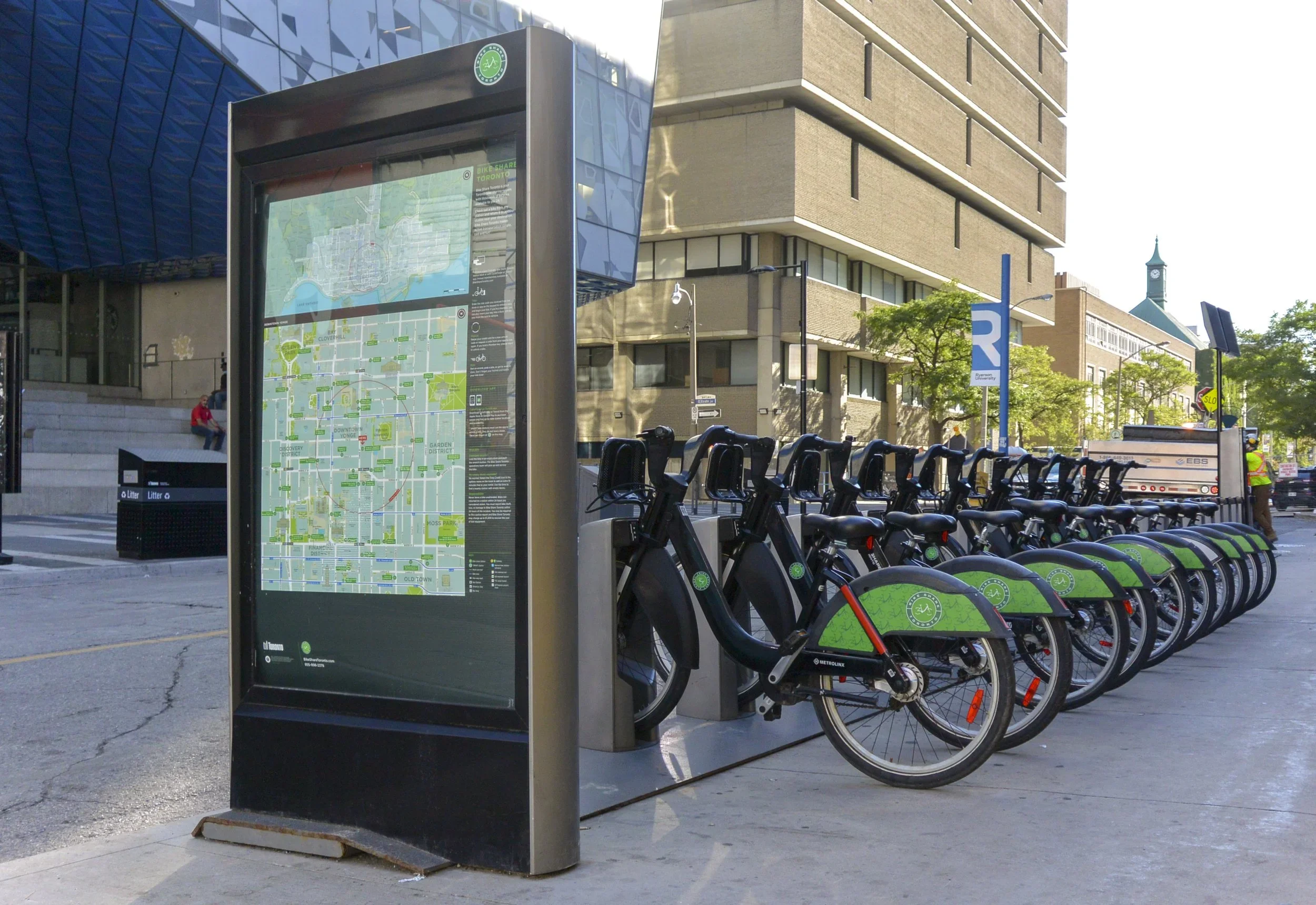Urban Aegis: Mitigating Corrosion of Bike Share Toronto Stations
Lead Researcher
Completed as part of the Engineering Strategies & Practice II course at the University of Toronto, this client-backed design study focused on mitigating corrosion at Bike Share Toronto stations. Our team analyzed environmental conditions across the GTA, established performance and cost objectives, explored over 150 design concepts, and ultimately developed a corrosion-resistant vinyl wrap for the station bases. This solution extends service life, improves appearance, and offers a cost-effective approach for large-scale deployment. I coordinated testing and documentation, including immersion, temperature cycling, and field evaluations, to validate the design’s effectiveness.
Project Overview
This project was completed for Martin Gagné, founder of ZELIXIR Inc. and a subject matter expert in zinc metal coatings. Mr. Gagné partnered with our team to address corrosion forming on the steel bases of Bike Share Toronto stations. As BST expands across the GTA, this issue threatens the longevity and sustainability of its infrastructure. Our goal was to develop a cost-effective corrosion mitigation solution that protects exposed steel surfaces, extends station lifespan, and supports the continued growth of Bike Share Toronto.
Design Development
Our team began by analyzing the corrosion challenges affecting Bike Share Toronto’s steel station bases, identifying exposure to moisture, salt, and daily wear as key contributors. We explored several potential solutions, including industrial coatings, alternative materials, and barrier systems, before selecting a vinyl wrap approach as the most practical and cost-effective. The wrap design provides a flexible, durable barrier against corrosion while maintaining the system’s visual appeal and ease of maintenance.
Design #1 - Hot-Dip Galvanization
Design #2 - Vinyl Wrapping
Design #3 - Surrounding Walls and Roof
Testing & Validation
To evaluate the durability and effectiveness of the vinyl wrap design, multiple tests were conducted to simulate real-world conditions. A Modified Immersion Test exposed wrapped and unwrapped steel samples to a corrosive solution for six days, where the wrapped samples showed minimal corrosion. Additional temperature cycling and cyclic corrosion tests were completed to assess performance under fluctuating environmental conditions. Across all tests, the vinyl wrap demonstrated strong adhesion, flexibility, and corrosion resistance, confirming its potential as a durable and low-maintenance solution for Bike Share Toronto stations.

Wrap Style 1 - Before Temperature Test

Wrap Style 1 - After Temperature Test

Wrap Style 2 - Before Temperature Test

Wrap Style 2 - After Temperature Test

Immersion Test - Day 0

Immersion Test - Day 6

Wrap Style 1 - After Immersion Test

Wrap Style 2 - After Immersion Test





